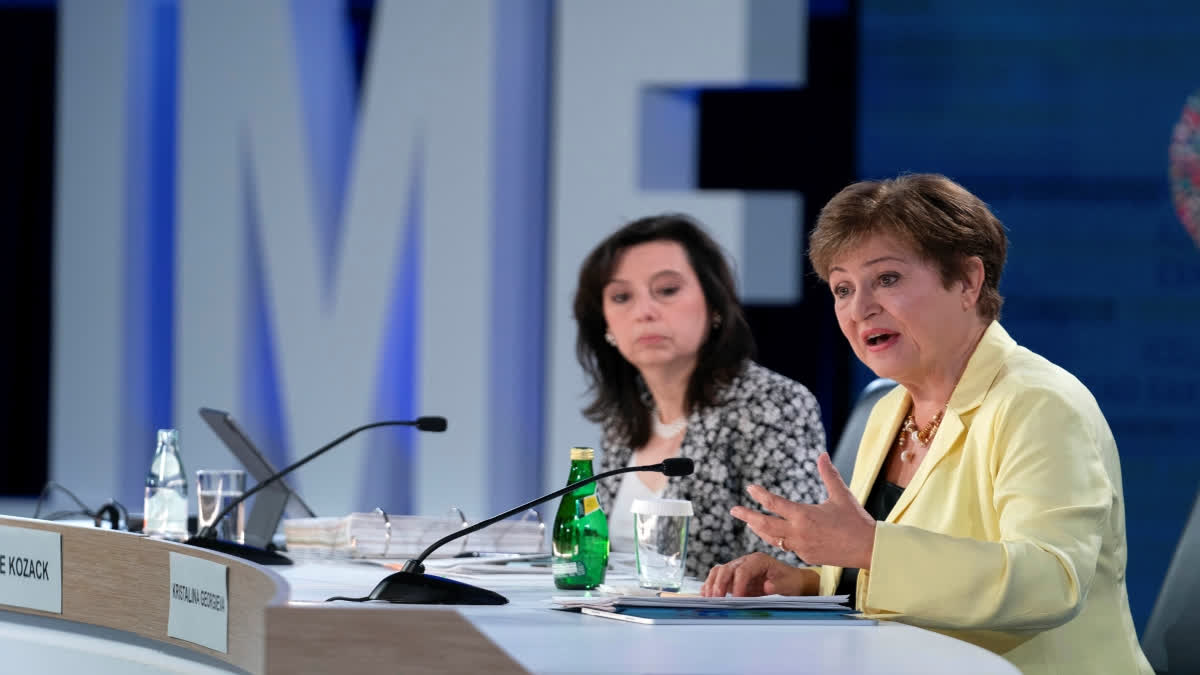Washington: The world economy, buffeted by conflict and growing geopolitical rivalries, is in danger of getting stuck in a slow-growth, high-debt rut, the head of the International Monetary Fund warned Thursday. She also urged Chinese leaders to take more decisive action to jump-start their country's sluggish economy or risk seeing economic growth plummet.
“These are anxious times,’’ the fund’s managing director, Kristalina Georgieva, told reporters during the fall meetings of the IMF and its sister agency, the World Bank. The IMF forecasts that the global economy will expand this year at what Georgieva called an “anemic'' 3.2%.
Global trade is lackluster at a time of conflict and growing geopolitical tension — including frosty relations the world's two largest economies, the United States and China. ”Trade is no more a powerful engine of growth,'' she said. "We live in a more fragmented global economy.'
At the same time, many countries are struggling with debts they took on to combat the COVID-19 pandemic. The IMF expects government debts worldwide to to top $100 trillion this year. That would equal to 93% of global economic output — a share that is expected to approach 100% by 2030.
“The global economy is in danger of getting stuck on a low growth, high debt path,'' Georgieva said. ”That means lower income and fewer jobs.'' Still, the economic backdrop isn't entirely bleak.
The IMF says the world has made considerable progress to rein in inflation that surged in 2021 and 2022 as economies roared back with unexpected strength from pandemic lockdowns. She credited higher interest rates engineered by the Federal Reserve and other central banks and the easing of backlogs at factories, ports and freight yards that had caused shortages, delays and higher prices.
In wealthy countries, the fund expects inflation to drop next year to the 2% sought by central banks. And price pressures have eased without sending the world into a recession. “For most of the world, a soft landing is in sight,’’ Georgieva said. But many people are still struggling with high prices and economic uncertainty. World leaders are telling her that their economies are relatively healthy — but ordinary “people are not feeling good about their economic prospects.’’
The IMF, a 190-nation lending organization, works to promote economic growth and financial stability and reduce global poverty. In its latest World Economic Outlook report, issued Tuesday, the fund forecast that the once high-flying Chinese economy would grow just 4.8% this year and 4.5% in 2025, down from 5.2% in 2023.
Georgieva urged the Chinese government to shift away from dependence on exports and toward more reliance on spending by consumers, which she called a ”more reliable'' engine of growth. Taking "decisive action'' to reverse a collapse in the Chinese property market, she said, would boost consumers' confidence and willingness to spend. "If China doesn’t move, potential growth can slow down to way below 4%,'' she said.



